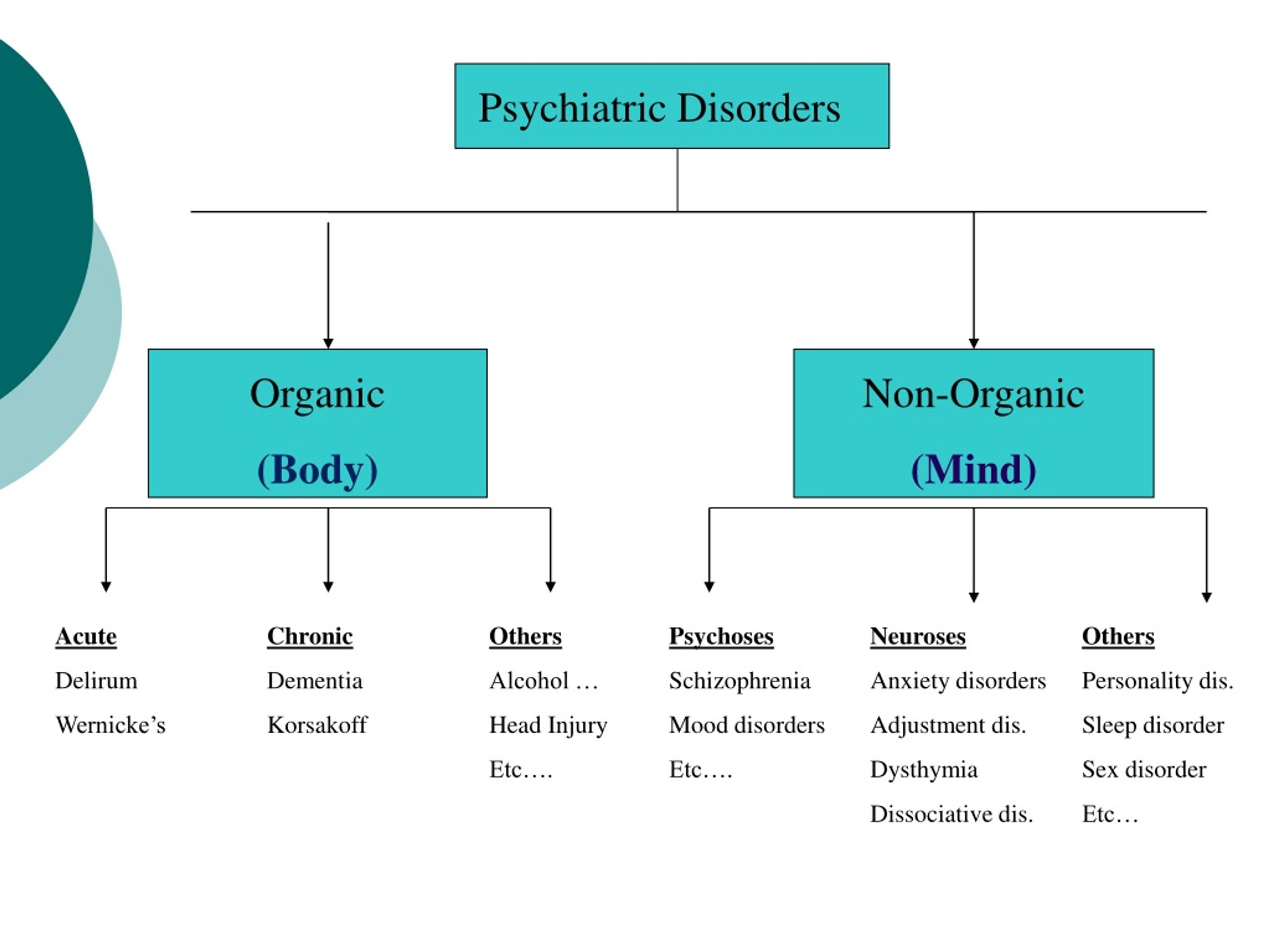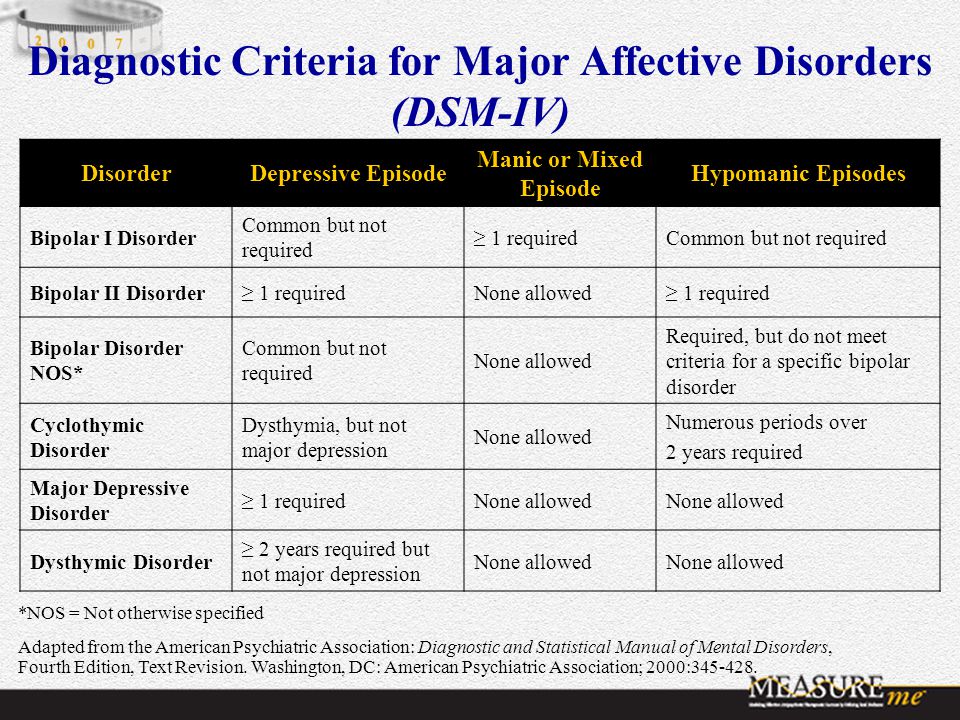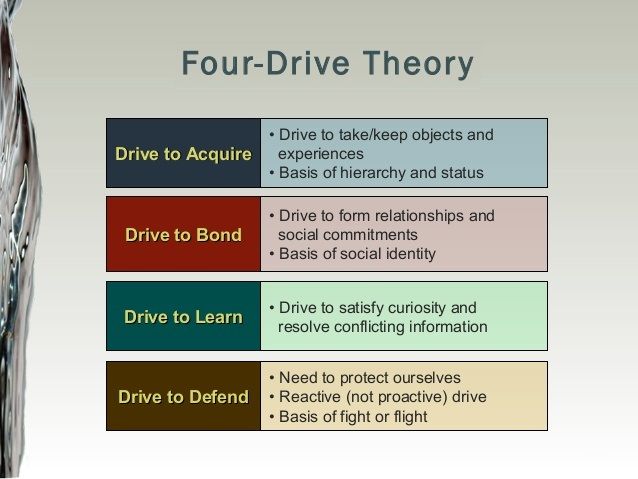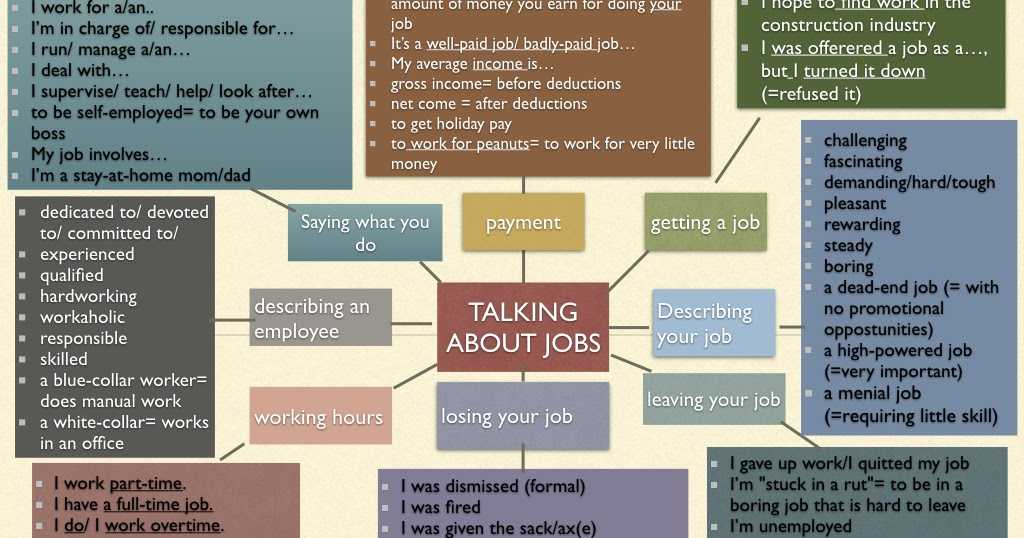Love for your parents
Love your parents, Before it’s too late
We are not born to live alone. Isolation is not for humans, no matter how much we love being alone still we cannot survive it much longer. Yes, some of you must be among those who enjoy loneliness and their own company. But the fact is those people who love you, want your attention and time. They want you to spend time with them.
Relationships demand life sharing, husband wants wife’s attention, kids want parents’ attention, sisters want brothers’ attention vice versa. But the most loyal of all relationships is with parents. It’s because they give you unconditionally whether it’s love, support, or anything. They spend their whole life in grooming you, raising you, and making you what you are today.
Most of you would not be at this place if your parents didn’t support or encourage you morally as well as financially. So, don’t you think, those people who have shared their whole life with you deserve your attention and time? Don’t you think it’s their right?
If your patents are alive, even if any one of them is, you should be thankful that you still have time to love them, to hold their hand, to pour out your heart to and to be with them. Believe me, what you get from your parents is the purest love. Show compassion, be supportive as if you stay busy, you won’t even realize and they will be gone one day.
You won’t get this chance again, every single passing day is moving towards the time when they will be not there for you. Love your parents, console them when they are worried or sad, as they have loved you when you were through all the life.
How much you try, you can’t repay what your parents have given you. Not at least in this life. But you can make them happy simply by doing the following things.
1. Give Them Time:
Life is busy, but maintaining a work-life balance is important. Don’t stay back late in the office or if you are on work from home, just work for few hours, divide time evenly. Don’t work for the whole day. Your parents wait for you to be free so they can talk to you, they can tell you how they feel. And believe it such moments with parents have mutual benefits. They get to spend time with you and you get a chance to relax by turning away from your busy stressful life. Give it a try and see how it changes your life.
Give it a try and see how it changes your life.
2. Don’t Fight with your Parents
Argumentation is inevitable. Children and parents especially mum and daughters they argue about petty things as laundry, whom you are talking to or what should you eat?
Arguments are settled eventually with time when you open to listening to each other respectfully. Never be disrespectful or rude to your parents as like this you will lose your respect in your own and their`s eyes as well.
The bond between parents and children is free of any conditions. All you have to do is share your life with them as they are the reason you have been bestowed with one.
3. Caring for your Parents should be your Top Priority
Always look after your parents as they are growing old and they need your love and affection more than ever now. Take care of their every little thing.
4. Engage your Parents in Social Groups or Activities of the Same age people
Due to old age, with time your parents will become more dependent on you. Age-related health complications will make it difficult for them to stay as social as they were before. It will restrict their engagement in their social gathering and they won’t be able to meet their friends on their own due to commute issues. Make sure to take them out. Take them to their friends’ place.
Age-related health complications will make it difficult for them to stay as social as they were before. It will restrict their engagement in their social gathering and they won’t be able to meet their friends on their own due to commute issues. Make sure to take them out. Take them to their friends’ place.
Staying home will make them frustrated and it won`t be good for their mental wellness. on top of that seeing their friends dying will make them more upset and lonely so it is essential that they make new friends. Engage them in social activities which comprise of people of the same age. Making new friends will keep them busy, relax and happy.
Tip of the Life: Don’t ignore your parents, give them respect and importance or you shall regret it your whole life after they have left.
{{:comment}}
{{if id!=-1}}
{{if opinion && opinion[0] && opinion[1]}} {{:opinion[0]. count}} {{:opinion[1].count}} - {{/if}} Reply - Flag
count}} {{:opinion[1].count}} - {{/if}} Reply - Flag
Flagged
{{/if}}
Respect & Love Your Parents, Not Everyone Has That Privilege
Respect & Love Your Parents, Not Everyone Has That Privilege
by Creative Healthy Family 3 Comments
Lately, I’ve really been thinking about how important it is to respect and love your parents while you can because so many people don’t have that privilege anymore. How we need to care for them as they get older, even if they didn’t always care for us just right- so that we don’t live a life of regret later. Let’s discuss.
Respect & Love Your Parents While You Can
Earlier this week, a friend shared one of those trendy quote memes on Facebook. It said something like “love your parents because not everyone has that opportunity.” I was checking out the comments, and one conversation really stood out. I won’t share it word-for-word here because it was on a private page, but I’ll give you the gist since it inspired me to write this post.
It said something like “love your parents because not everyone has that opportunity.” I was checking out the comments, and one conversation really stood out. I won’t share it word-for-word here because it was on a private page, but I’ll give you the gist since it inspired me to write this post.
Basically, friend A (we’ll call her Sue) made a comment about how her mom makes it so hard to care for her because her beliefs are so fundamentally offensive to Sue. She said that while she’ll always love her mom, she just “can’t deal with her,” so they don’t speak. Friend B (we’ll call her Betty) replied with a heartbreaking comment. She said that she empathized with Sue because she stopped talking to her dad for the same reason: a major difference in political opinions.
Then came the heartbreaking part. Betty said she’ll regret it for the rest of her life because her dad died earlier this year. She never got the chance to make things right. Never got the chance to care for her dad the way he cared for her when she was little. She’ll never have that opportunity again, just like the quote said.
She’ll never have that opportunity again, just like the quote said.
We truly never know how much time we have left
I’ve said it so many times in the past, but it bears repeating -we truly have no idea of just how long we’ll have with our parents. This last year has really proven that beyond a doubt. Way too many kids- both young and old- were forced to say goodbye to mom and dad long before they were ready (although we’re never truly ready). For those who made the most of the time with their parents, at least they’ll always have those memories to hold onto. Sadly, way too many now live like Betty, with regret over the things left unsaid, the time left unspent, the hugs left ungiven.
It’s easy to respect and love our parents when everything is great between us. If you get along with them, caring for them really doesn’t take much effort. It’s not even something you think about, something you need to be reminded to do. You just do it, as naturally as breathing.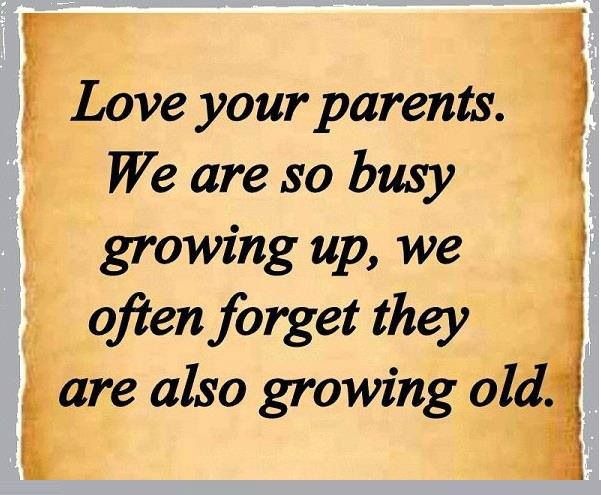
What if everything isn’t great, though? Maybe, like Sue and Betty, you clash with them over politics, religion, or other major fundamental issues. Perhaps you’ve never gotten along with them in the first place. What if caring for them isn’t really something that comes naturally to you?
If that’s the case…, do it anyway. I know, that sounds like such a dismissive thing to say, so let me elaborate a bit.
Care for Your Parents Even If They Didn’t Always Care For You
Last year, I shared a list of duties that we have toward our parents when they get older, and some of the comments were heartbreaking to me. A few readers pointed out that they never received care and love from their parents when they were younger, so why should they give it now that their parents are older?
I want to make excuses for their parents because it’s hard for me to fathom not being there for my own children. To say, “Oh, well their generation was different,” or “maybe they did the best they could in difficult circumstances. ” The truth is there’s no excuse that will bring them comfort, that will make it okay. There’s very little more painful in this world than feeling like your own mom or dad abandoned you or didn’t really love you. So how on earth can I say “care for them anyway” with a straight face?
” The truth is there’s no excuse that will bring them comfort, that will make it okay. There’s very little more painful in this world than feeling like your own mom or dad abandoned you or didn’t really love you. So how on earth can I say “care for them anyway” with a straight face?
It has nothing to do with them and everything to do with you
Here’s the thing: caring for those parents- those who never cared for you- has nothing to do with helping them and everything to do with helping yourself. For your own peace of mind, do it so that you never have to live with regret. Because even if you think you don’t give two hoots about those people who weren’t there for you, when they’re gone you may feel differently. By then, it’ll be too late.
A friend of mine thought she didn’t care a shred about her father. He was never there for her a day in her childhood. In fact, he only reached out after she was an adult. She thought that right up until the day he died. Heck, she thought it for over a decade after that. Then, one day out of the blue, she suddenly did care. Of course, it was way too late by then.
Then, one day out of the blue, she suddenly did care. Of course, it was way too late by then.
I’m not saying you have to forgive your parents. You should never force forgiveness. I’m not saying you have to act like the past never happened and that you’re not still angry. I’m just saying care for them. Care for them the way you wish they’d cared for you.
Do it so that 20, 30, even 40 years from now, you’re not sitting there on the other side of the equation with your kids caring for you, wishing that you’d maybe made more of the time you had left with them. I hope that makes sense. Basically, if you can’t do it for them, do it for yourself.
Advice
SUBSCRIBE!
and get weekly updates delivered straight to your inbox.
Reader Interactions
"Love for parents" - an essay on the brightest topic that can only be
- Compositions
- About the family
- Love and respect for parents
Parents are those people who from birth were our environment, our protection and the greatest love.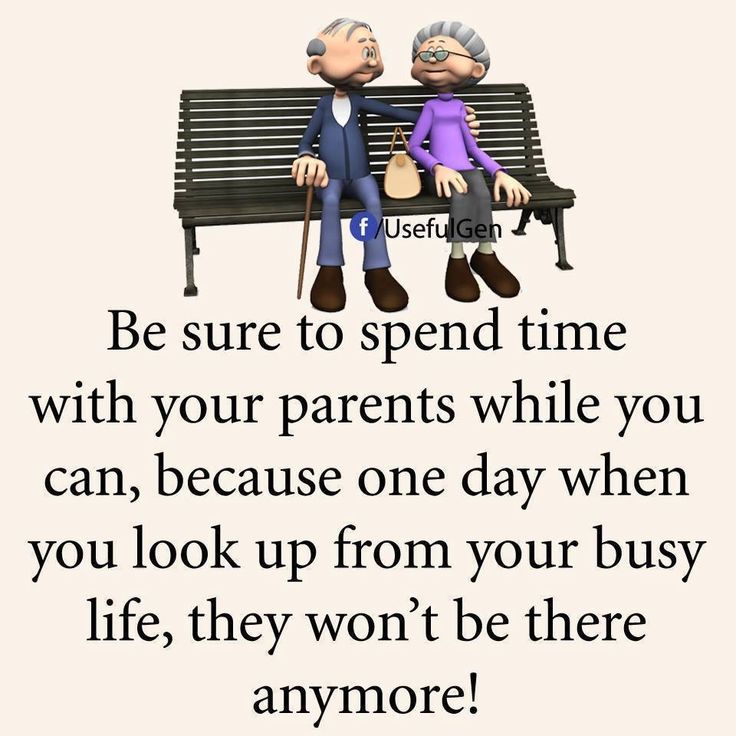 Parents, this is such a gentle, kind, and native word, and most importantly, these are the people whom we designate with this word. We are talking about the closest people, moms and dads. Family is not just a word, it is the whole Universe. But why should we love and respect our family? Today we will talk about just that.
Parents, this is such a gentle, kind, and native word, and most importantly, these are the people whom we designate with this word. We are talking about the closest people, moms and dads. Family is not just a word, it is the whole Universe. But why should we love and respect our family? Today we will talk about just that.
Let's not forget how we were born. For our mothers, this is the happiest moment in life. Our mothers carried us under their hearts for nine months. They experienced different emotions, and happiness, and constant fatigue and mood swings. For this we are immensely grateful to them, and we show this by the manifestation of our great and warm love. Our dads on their only weekends tried to take us to entertainment events, to the circus, to the amusement park or to the movies.
It was only thanks to them that we first saw the sky, the sun and the stars. For the first time we tried chocolates, for the first time we sat on a bicycle. Under their control, the first mathematical examples and problems were solved, the first dictations were written under their dictation and the first mistakes were found.
It was they who created us, it was they who nurtured in us a person who would be able to correctly position himself in society and prove his candidacy in work. A person who has great prospects and feels confident in society.
We heard praise, compliments, remarks, and criticism from parents. They brought up in us civilized people, educated and adequate, building the future. Parents help many people decide on their future direction. They send their children to sports sections so that future champions can grow up who can show themselves at the Olympics and other sports competitions.
Even if you did not follow the advice of mothers and fathers regarding your future profession, they will still respect your choice, because they believe that the main thing is that their child be a happy person. And in any case, they will be proud of you and cherish you.
Everything that is written here is only a small part of what mom and dad, the closest people in our lives, do for us. For everything they do, we love, appreciate and respect them very much. It was they who gave us a ticket to life, and tried to bring more emotions, happiness and smiles into our lives. For everything that our parents do for us, we are extremely grateful to them. And this is manifested in our love and respect, which will always be.
For everything they do, we love, appreciate and respect them very much. It was they who gave us a ticket to life, and tried to bring more emotions, happiness and smiles into our lives. For everything that our parents do for us, we are extremely grateful to them. And this is manifested in our love and respect, which will always be.
Option 2
This topic has been relevant at all times in a person's life. Every person on earth is someone's child. And therefore, love and respect of children for their parents should be brought up from birth, and it is important not to miss this moment.
Parents are the most sacred thing in the life of every person, they need to be loved and appreciated for what they do for their children, and do not forget to thank them simply for what they are. After all, only mom and dad are worried, their child ate, didn’t get sick, no one offended him and whether he was dressed warmly, etc.
But it is important to note that relationships between children and parents do not always go smoothly. Often they do not understand each other and upset their parents over trifles. Children do not understand that when they are scolded, they do not want to offend or punish them just like that, and parents are just raising their child and wish him only the best. So that he grows up as a worthy and honest person, for whose upbringing one can be proud.
Often they do not understand each other and upset their parents over trifles. Children do not understand that when they are scolded, they do not want to offend or punish them just like that, and parents are just raising their child and wish him only the best. So that he grows up as a worthy and honest person, for whose upbringing one can be proud.
Only after a while, having already become an adult and independent person, the child begins to regret that he upset and offended his relatives over trifles. Since the child, being small or at a young age, does not understand how much they do for his sake. After all, having decided to become parents, adults voluntarily sacrifice their lives, devoting it entirely to their child.
Raising a child only at first glance may seem easy and not difficult, but it is absolutely not so - it is a big and hard work that will require a lot of effort and patience.
Regardless of their age, a child should not forget about their parents, but pay attention to them and spend more time with them, because they will be very pleased that the children do not forget them and visit them. Throughout life, a person must carry his special feelings of love and respect for his parents. It is important to remember every person on the planet that parents are the most valuable thing given by the Almighty. After all, apart from them, no one needs their child, no one is so worried about him and will be able to be sincerely happy for the goals achieved.
Throughout life, a person must carry his special feelings of love and respect for his parents. It is important to remember every person on the planet that parents are the most valuable thing given by the Almighty. After all, apart from them, no one needs their child, no one is so worried about him and will be able to be sincerely happy for the goals achieved.
Final essay "The role of parental guidance"
Option 1
Each parent gives the child life advice throughout the entire process of education. Sometimes these tips are useful and reasonable, sometimes, on the contrary, they have a negative impact on the formation of the child's personality. However, all parental advice undoubtedly leaves one mark or another in the lives of children, sometimes playing a decisive role in the development of a child's fate. To prove the importance of parental instructions in people's lives, let's turn to the works of the classics.
Consider this issue on the example of A.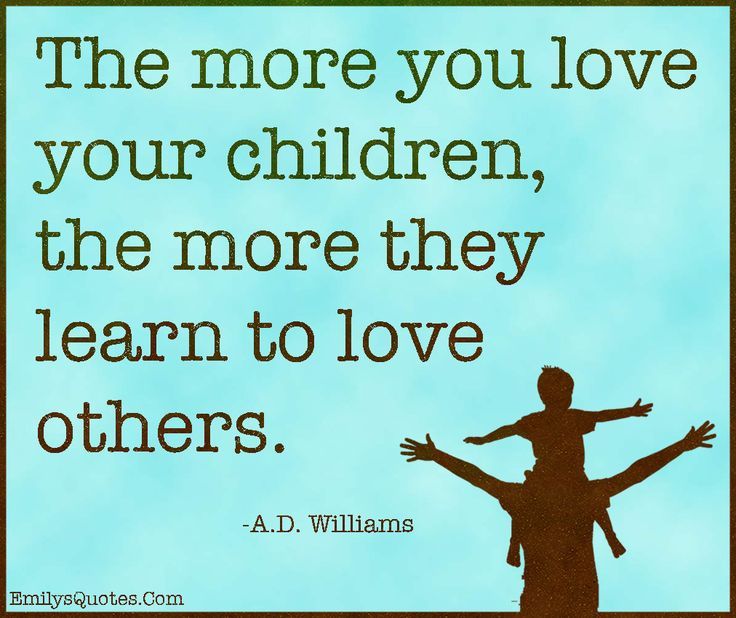 S. Pushkin "The Captain's Daughter" The main character follows the example of his father in everything. For Pyotr Grinev, Andrei Petrovich's instruction is a life guide: "take care of the dress again, and honor from a young age." It was this covenant that was firmly entrenched in the head of the young man. The father, by his own example, showed his son that it is necessary to be honest, faithful to his duty, brave, courageous. His instructions and personal example played a decisive role in the life of Peter - he always followed the advice of his father. In all his life, he did not deceive, did not get scared, did not betray his neighbor. The young man served the fatherland and, in spite of everything, remained faithful to his principles, as his father bequeathed.
S. Pushkin "The Captain's Daughter" The main character follows the example of his father in everything. For Pyotr Grinev, Andrei Petrovich's instruction is a life guide: "take care of the dress again, and honor from a young age." It was this covenant that was firmly entrenched in the head of the young man. The father, by his own example, showed his son that it is necessary to be honest, faithful to his duty, brave, courageous. His instructions and personal example played a decisive role in the life of Peter - he always followed the advice of his father. In all his life, he did not deceive, did not get scared, did not betray his neighbor. The young man served the fatherland and, in spite of everything, remained faithful to his principles, as his father bequeathed.
However, parental guidance does not always have a positive effect on children. We can find confirmation of this in the work of the comedy genre “Woe from Wit”, authored by the writer A.S. Griboyedov. The protagonist of the work gives his daughter Sophia a lot of advice. Pavel Afanasyevich tells her that the girl should take an example from him in everything. The main instruction of the father is that it is necessary to marry successfully. Famusov himself is looking for a rich chosen one for his daughter. What role did the father's instructions play in Sophia's life? Certainly a lot. The girl grew up selfish and deceitful. For her, as well as for the whole society in which she was brought up, the concepts of morality and morality are unfamiliar, as evidenced by her low act towards Chatsky.
Pavel Afanasyevich tells her that the girl should take an example from him in everything. The main instruction of the father is that it is necessary to marry successfully. Famusov himself is looking for a rich chosen one for his daughter. What role did the father's instructions play in Sophia's life? Certainly a lot. The girl grew up selfish and deceitful. For her, as well as for the whole society in which she was brought up, the concepts of morality and morality are unfamiliar, as evidenced by her low act towards Chatsky.
Based on all of the above, we can say that it is the advice and instructions of parents that sometimes play a decisive role in the life of every person. The words of the parents never go unnoticed for the child. This must be understood and taken into account when raising children, because their fate is largely in the hands of their parents.
Option 2
For the most part, people spend their childhood and youth in the family, if you do not consider the situation with orphans and other similar options with not the best fate options, then for a significant part of people the situation is exactly this way. Therefore, for many people, it is the parental influence and parting words that parents provide that are largely decisive.
Therefore, for many people, it is the parental influence and parting words that parents provide that are largely decisive.
In short, the role of parents in shaping personality can be, of course, different. In some families, there are well-established traditions of close family communication and interaction, children actively listen to their parents, in other families a little more freedom is provided, somewhere parents almost completely let the child or children swim freely, somewhere they prefer to simply act by their own example and thus provide guidance for behavior. Parenting is a very difficult and multifaceted area, so we will just try to briefly understand how parental instruction can work for a child.
It seems to me that two factors are of the greatest importance here: subjective and objective. Parental authority and the importance of parents in the family is a subjective factor, in other words, the instruction acts to the extent that the child is accustomed to and prefers to listen to adults, if they are authorities and can powerfully influence, then the child will perceive the instruction as if with all his being and remember. The objective factor is the value of instructions as such; we are talking, for example, about moral values that a parent can pass on to a child based on their own experience and development.
It is quite useful to always balance these two factors in order to more accurately assess the role of parental mentoring. For example, a parent may have a low level of their own development: not be distinguished by intelligence, have prevailing negative qualities and be guided in their behavior and attitude to the world by some base principles, for example: “in order to achieve something, you need to deceive others, people outside the family don't deserve respect." At the same time, if such a parent has high authority in the family, then he will not transmit the best values to the child, and the child will learn these values without any reflection and critical evaluation.
Option 3
The family has a strong influence on the formation of a child's personality, so the role of parental guidance in his life can hardly be overestimated. It sets the course on which a person sets off for adult swimming. It is the precepts of fathers and mothers that come to our minds in difficult times, determine our behavior in stressful situations. To substantiate my assertion, I will give literary examples.
In Pushkin's novel The Captain's Daughter, the father teaches his son the most important life lesson: "Take care of your honor from a young age." It was this covenant that helped Peter survive and maintain his dignity in the conditions of the peasant war, where the officers were severely tested. The fortress where our hero served was captured by the rebels. Pugachev decided to execute those who would not go over to his side, but Grinev had strong convictions and remained faithful to the oath. He was saved not by betrayal, but by a beneficence once rendered to the leader of the uprising. Emelyan let him go, and the young man joined the ranks of the army. But suddenly he received the news that his bride was a prisoner of Shvabrin, who was forcing her to marry with threats. Peter goes to save the girl and is again guided by the principles instilled in him by his father. In the final, Grinev achieves well-deserved happiness, and one of the main reasons for his success is the right upbringing. Parental guidance determined the life guidelines and priorities of the young man, laying the foundation for his success.
In the poem "Dead Souls" the father also gave his son instructions, but somewhat different: "Take care of the penny." The elderly gentleman believed that only money can be reliable comrades, so you should not be friends with people. He also advised the child to establish contact with his superiors and be accommodating when it comes to his own benefit. In a word, the meaning of life, according to the parent, was hoarding and money-grubbing. Pavel learned the science of his father and became an unscrupulous swindler. He planned to deceive the Board of Trustees, which was in charge of the affairs of orphans and widows and provided assistance to them. Chichikov intended to pawn non-existent peasants there and get capital, which is why he bought up dead souls. Thus, the wrong parental instruction derailed the fate of the hero: he became a cynical swindler, following his father's covenant.
Parental guidance plays a primary role in the life of each of us. It forms the character of the individual, his worldview and values. It also builds a system of moral guidelines by which a person evaluates his actions. All this affects the fate of people, guides them along the path of life. Behind every success or failure is the right or wrong upbringing received within the family, and therefore the father and mother are responsible to the child for their every word.
Option 4
All parents dream that their children grow up to be kind, smart and happy people. Mother and father try to give their children as much warmth and care as possible, strive to provide them with everything necessary so that children are always comfortable and cozy in this difficult life. Growing up, the child begins to understand that parents will not always be able to protect him from life's adversities, no matter how much they would like to.
A teenager is literally choked with waves of conflicting feelings, and at this difficult moment of life, wise parental instructions and their personal example again come to the rescue. Each of the parents strives to ensure that their child receives more in this life than they once got in childhood. Therefore, he does everything possible and even impossible for this.
Gives his last pennies for education, often denying himself elementary things. If children appreciate these parental impulses, if they remain grateful, mother and father can say with confidence that they have raised a good person. Although it was not easy for them, all these hardships were worth it. In the work of A.S. Pushkin's father, Petrusha Grinev, teaches his offspring goodness and honor, instructing his son: "Take care of your dress again, and honor from a young age. " These fatherly orders do not pass by.
Petrusha respects her father's advice and instructions. Therefore, he grows up and becomes a decent and honest person. But it also happens differently. Father in childhood also teaches Chichikov frugality, with the only difference being that it is not about honor and conscience, but about money. Therefore, the already adult Chichikov, having absorbed his father's mandate, saves a penny, and how. For money and gain, this diligent student does not see someone else's misfortune and grief. How many such soulless Chichikovs we meet in our time. Someone raised them and taught them to grab and take without thinking about others.
Perhaps their parents said the right and clever words, but they did everything differently, treating unfairly those who, from their point of view, did not correspond to their status. All these contradictions took place in front of the children. So the new Chichikovs grew up. Parental guidance, like a blessing, has great power. If all parents taught their children to live honestly and fairly, to respect people, regardless of their financial situation, to treat the surrounding nature and our smaller brothers with kindness and take care of them, how much easier and more beautiful our life could become.
Composition Love and respect for parents
Many people believe that parents can be treated as they see fit, referring to the fact that there are parents who do not deserve a good attitude, however, this statement is fundamentally wrong. Any self-respecting person is simply obliged to respect and, most importantly, love his parents, no matter what. After all, parents are the most valuable thing in our lives.
Parents lead us by the hand throughout our conscious and unconscious life. Even if they are not around now, you can always feel their care, even through a great distance. Parents are the most valuable thing in life, and the most valuable thing that really needs to be appreciated and protected, because without your family you are practically nothing.
You can always ask your parents for help, and no matter what, they will help you. This is the boundless parental love. Your parents will always love you, even if you have done wrong or done something very bad.
Parents will instruct you all your life, change your vector of development in the right direction, so that you do not stray from the path of a good person, and, be sure, they will never betray you, because this is a priori impossible.
At all times there were stories of boundless parental love, which described their caring attitude towards their family in order to instill this opinion in the younger generation. And this makes him respect his elders even more.
However, we should look at this issue from a different point of view. Although it has been said that almost all parents deserve respect, there are those who, oddly enough, do not deserve it. Such people are usually called incompetent in the matter of raising, caring for, and protecting a child, because of which they are often deprived of parental rights. I consider this fact to be correct, because if such families are not deprived of parental rights, then children will grow up in an environment that is unfavorable for them, which can adversely affect their growing up and becoming a person. From all of the above, we see that this issue has many interpretations of this issue and reasoning on it.
Popular essays
- Composition Heroes of the novel Fathers and children (characteristics)
There are many heroes in the novel, and each of them presents his own worldview and opinion. - Images of people's intercessors in the poem "To whom it is good to live in Rus'"
Nekrasov in his work very often refers to such a theme as showing the "people's protector", in particular in his work "To whom it is good to live in Rus'". - What is Character essay reasoning
Character is the basis of the personality of each of us. What is the foundation of our individuality, what distinguishes us from others. We live in a society, every day we are surrounded by thousands of people
Problems and arguments in the direction "The role of parental guidance"
The role of the family in the development of personality
In D. I. Fonvizin "Undergrowth", this problem touched one of the main characters Mitrofanushka - the son of the landowners Prostakov. The young man is already 16 years old, but he still does not know what he wants from life. It cannot be said that the parents did not love the child, on the contrary, they literally choked him with their care and guardianship. Mitrofanushka's mother, Mrs. Prostakova, demonstrated a particularly similar zeal for "education". Maternal love completely blinded the domineering woman. She seemed to see nothing around, except for the exaggerated merits of the underage Mitrofan. She did everything to bind him to her forever. From here came the lack of independence of the young man, laziness and lack of education. The undergrowth had no need to bother himself, since all the problems were solved for him by an overly attentive mother. Thus, in the play D.I. Fonvizin's family played a huge role in the life of Mitrofanushka: blind parental love did not allow the hero to develop.
In the story of N.V. Gogol "Taras Bulba" the problem of the role of the family in the formation of personality is one of the most important. The family of the old Cossack Taras Bulba had two sons - Andriy and Ostap. The image of the father for the latter became sacred. From childhood, Ostap obediently did everything that his parent taught him. He inherited from him such character traits as perseverance and masculinity. Feelings of patriotism, duty to family and comrades were also instilled in the Cossack by his father. It is safe to say that thanks to family upbringing, respect for the traditions of his ancestors, Ostap stood up for his Motherland with dignity, withstood all the torments of execution. However, the excessive pressure and excess energy of Taras had a negative impact on the upbringing of Andriy, who fled from his home and violated all the unwritten rules of his kind. He rebelled against the pressure of the head of the family and wanted to build his life differently. Thus, the same upbringing had a different effect on the fate of Bulba's sons.
The problem of fathers and children
The protagonist of the novel I.S. Turgenev "Fathers and Sons" Yevgeny Bazarov could not find a common language with his parents. Being an adherent of new inoculations and mores, a man of science, not faith, Evgeny Bazarov considers the behavior of parents inappropriate and outdated. He loves his old people, but doesn't want to live in the past. Also, the liberal views of the hero give rise to a conflict between him and his friend's uncle, Pavel Petrovich Kirsanov. Yevgeny is horrified by the fact that Kirsanov is ready to spend money on white collars and an imported suit in the countryside, where no one sees his efforts anyway. According to the young physician, Pavel Petrovich's beloved art, in comparison, did not go with science and the natural labor of a person. The elderly man also does not understand the guest, considering him an ill-mannered snob. Only in the final they come to terms with the existence of each other, recognizing the fact that the confrontation of generations is a normal phenomenon.
The reason for the broken fates of the heroes of the play by A.N. Ostrovsky's "Thunderstorm" is again a mutual misunderstanding that arose due to the difference in age, excellent views on the world of fathers and children. So, the main character of the work, Katerina, became an unloved daughter-in-law, because she does not correspond to the ideas of the merchant Kabanikh about a decent person: she does not obey her mother-in-law, allows herself to speak out about something, is deprived of meekness and respect for elders. The confrontation between generations leads to complete chaos in the Kabanovs' house, and ultimately to Katerina's suicide.
Another representative of the "elite" of the city of Kalinov and co-ruler of Kabanikh in the "dark kingdom", the merchant Dikoy hates his nephews and the whole family as a whole. It is difficult for him to accept that the younger generation has the same rights as himself, that the same Boris deserves respect. And young men and women also rebel against outdated orders: Varvara deceives her mother, and in the final she runs away from home altogether, Tikhon blames Kabanova for the death of his wife, etc. Alas, all the characters lacked kindness and understanding, otherwise they could have avoided all these negative consequences.
The problem of education
Father of Pyotr Grinev, one of the main characters in the story Pushkin "The Captain's Daughter" - asked his son to learn a simple truth: "take care of honor from a young age." Thanks to the instructions of his father, exemplary education, Pyotr Grinev was able to emerge victorious from a difficult game called "Pugachevism". The honor and respect of not only friends, but also opponents, led Grinev, despite his misdeeds, to finding happiness and success in business. Of course, the contribution of Savelich's father and "nanny" is a very significant contribution to this victory. Peter did the right thing when he did not reject the advice of his elders, drawing conclusions from them, the hero tried to act according to his conscience in everything and with everyone.
It's one thing when parents' advice is good for us, and quite another when a harmless father's lesson suddenly turns into the cause of a son's catastrophes. So, in the poem by N.V. Gogol's "Dead Souls" tells about the fate of a once poor young man who became a prosperous and active person. As we know, Chichikov decided to organize an adventure and cash in on the mortgaged peasants, who in fact do not exist. For the sake of enrichment, he was ready for any deception, so he traveled around the estates and tried with all his might to persuade the owners to sell him dead souls. The reason for such a frenzied craving for money was upbringing: even as a child, Pavel received an order from his father so that he would never forget the value of money, put material goods above all else. Such words served as a catalyst for moral decline, and later, oddly enough, the disastrous financial situation of the hero, because he left with nothing after Korobochka was exposed.
Children neglect their parents
Of course, all children love their fathers and mothers, no matter what the circumstances, but the realization of this fact does not always come immediately, that is, at an early age, when we are still able to correct the situation, while our parents are alive. In the story of K. G. Paustovsky "Telegram", the young heroine Nastya did not at all think about how dear her mother was to her. Nastya did not understand that the bright colors of big Leningrad would not replace her maternal love and affection. Unfortunately, the girl realized this too late - only when her mother was dying. The death of the closest person gave rise to a feeling of endless guilt in Nastya, because the old woman left this world alone, without saying goodbye to her daughter.
As for the protagonist of the novel, I.S. Turgenev "Fathers and Sons" by Yevgeny Bazarov, he also admitted his mistakes late, already on his deathbed. He appreciated the care of his father and mother, but considered its manifestation optional for himself. By virtue of his character, an educated hero commits rash actions - repels parents who are not sufficiently consecrated for scholarly conversations with him. Although, as it turned out, the feelings are much closer to the young nihilist than he himself thought. But he, rejected by his beloved woman, recognizes this much later, in need of help and affection. He realizes how painful it is for his mother to see his indifference, how ashamed she is that she is not smart enough to please her son. Alas, realization is too late, and the hero dies with a sense of guilt.
Essay on the topic “Family is the main thing in my life”
Family is the main thing in my life
“The key to family happiness is kindness, frankness, responsiveness”.
E. Zola
Family is the main thing in my life. And so I think it should always be. It is very important that a person has a kind, affectionate family, so that a person can always find support, love there, so that there is where to rest his soul, hide from adversity. Yes, sometimes we are scolded, we are offended, we argue, we rebel, although we are far from always being right. But we must be sure that we have somewhere to go, where we will be understood. And therefore, the family is spiritual wealth, this is my small homeland, which will always support and understand me.
My name is Ilsur. I am 13 years old. I was born and live in the village of Novoye Ermakovo, Samara region. My family is dad, mom and two brothers - Radik and Rasim. We live together! Radik is in the fifth grade, I am in the sixth grade, and Rasim is still small, he is only a year old. We are happy to babysit him - we help mom.
Family is the dearest and closest people. For me, my family starts with my mother. Mother's caress, tenderness, warmth surround us from the first days of life. Mom is the keeper of the hearth. The whole house rests on her fragile shoulders: after work, she needs to cook, feed, clean, help with her homework and still do a lot of things. Sometimes I wonder how my mother manages to do everything! In our house it is always warm and cozy for me, and dad, and guests, and even animals.
My family is engaged in agricultural work almost all year round. My brother and I do not stand aside from this work, we participate in the bulkhead, and in planting, and in processing, and in cleaning. In addition to potatoes, we plant carrots, beets, onions, garlic, cucumbers, tomatoes, zucchini, cabbage.
Our family is also engaged in beekeeping. Although dad does the main work, my brother and I help him in everything. This is a very painstaking job - caring for bees. To get a good harvest of honey, you yourself must work like a bee. In the summer we take the bees to the apiary, to the forest, and every day we take turns “on duty” so that the swarm does not fly away.
In the summer, there is real grace in the forest. The trees are dressed in bright green attire, soft grass spreads along the ground. The air is filled with the smell of herbs and sun-warmed wood. And in the early morning you can watch how fresh dew falls on the grass, how many forest flowers bloom. In summer, the forest is full of life. Insects scurry along the blades of grass, bees buzz in the air. In more often it is impossible to pass without getting entangled in a sticky web. These spiders hunt by spreading webs between bushes and trees.
There are many small traditions in our family. For example, every year in the spring we organize a community work day on our street: we clean up the garbage and whiten the trees, and now the neighbors have also started to come out and clean up with us.
And in winter the main tradition is skiing. Last year, our whole family participated in skiing competitions for the prize of the head of administration and won a prize.
We always celebrate the New Year at home. We lay the festive table together, but Radik is the main one here, he loves to lead very much. Instead of a Christmas tree, we decorate a pine - we have beautiful and fluffy ones. I don’t know when mom has time to prepare gifts and where she hides them, but after twelve they are already under the tree!
I call my family a treasure! I am the luckiest boy in the whole world. I believe that where peace reigns in the family, harmony, mutual understanding, love for their children, and children for their parents, this is an invaluable wealth. I am proud of my parents and my little brother.
From my father I inherit confidence in my actions, honesty and justice, decency, love and affection for me, for my brothers, for my dear, sincere and tender mother.
Due to the fact that peace and tranquility, mutual understanding, respect and honor for everyone always reign in our family, I stand firmly on my feet and am confident in the future. You must love and respect, respect your parents - do not cause them pain and shame with your behavior. For me, family is a place where I will always look forward to returning. My family and friends are always waiting for me and love me. My family is my support. My family is my castle.
15 reasons why you don't love your parents. Don't blame yourself for this / AdMe
Although we know that "all problems come from childhood", the topic of relations between adult children and parents in our society is still taboo. “Well, this is my mother”, “I was fed and raised, I should be grateful” - admitting negative feelings towards relatives, to put it mildly, is not accepted. Even if the insults inflicted by their upbringing turn over the years into self-flagellation, anxiety and a sense of deep failure.
We at Bright Side agree with the opinion of psychologists that people are not obliged to love their relatives, even if they are mom and dad. Today in our selection you will find 15 eloquent examples of what toxic behavior leads to in the family.
1.
Some parents criticize their children every time they feel angry, frustrated, or just down. This helps them vent negative emotions and hide their own vulnerability. In any words or actions of a child, dictated by even the best of intentions, such mothers and fathers will always find something to complain about. Over the years, the insatiable need of parents to amuse their own pride does not disappear, but an adult child has no desire to do at least something pleasant for loved ones.
2.
There is a category of parents who believe that if the child is well fed, dressed and shod, then their mission is completed. Inaccessible and cold, they may be present in the lives of their children physically, but not emotionally and spiritually. Growing up, the child feels that he must fulfill his filial duty: to help financially, provide care, find a doctor. But it is not worth waiting for warmth and attentiveness to mothers and fathers in such cases.
3.
Narcissistic parents are much more sympathetic. They closely monitor how the child learns, which circles he attends, and in what he succeeds. Such mothers and fathers feed their own ego with the achievements of their child. But at the same time, they do not see in him a unique and autonomous personality. Any mistake, a bad mark, a non-prize place becomes a reason for a scandal. The child feels constant pressure and is strengthened in the thought that he is not good enough. Having matured, such a person, in order not to experience pressure from relatives, will try to distance himself from communicating with them as much as possible.
4.
Emotionally "cold" mothers and fathers, if they do not completely reject their children, then seem not to notice and look through them, going about their primary affairs and problems. Having become much older, such parents discover with displeasure that for some reason the child does not show proper love, care and respect for them. But why be surprised? No wonder the famous proverb says: "What you sow, you will reap."
5.
Faced with devaluing parents, children experience shame that can last a lifetime. To protect themselves, the child may begin to do the same in response: mock the tastes of relatives, downplay their feelings, belittle their merits and achievements. Or do not tolerate attacks against you and emotionally distance yourself.
6.
Elderly parents often resort to a common manipulation: “We fed and raised you, but you don’t put a penny on us, ungrateful!” They know that they have great power over the children, and they try to maintain control even after they have left the family nest. Moms and dads can pressure, blackmail, force them to choose between them and other close people or values, creating a situation where any choice will turn out to be a betrayal. The wisest decision is not to follow the lead of manipulative relatives, but to learn to defend your own boundaries, not forgetting to show appreciation and gratitude for all that they have done.
7.
There is nothing wrong with moms and dads having some ambitions for their own children. It's bad when it turns into an obsession. If any conversation boils down to the question: “When will you settle down and start a family? It’s time for me to babysit my grandchildren,” relations between relatives are unlikely to become warmer and closer. Parents who know that they are making adult children uncomfortable with such questions, but continue to nag them, should not be surprised that one day the offspring will completely stop communicating.
8.
Parental support is as important to a child as breast milk is during the early stages of life. The trauma inflicted by a callous relative does not disappear on its own. Someone gives up, self-doubt and fear of a serious relationship appear. Someone, in spite of everything, wants to prove to his relatives that he is worth something, and achieves dizzying success. However, both those and other people in the depths of their souls often feel abandoned and devastated.
9.
Trusting a secret to an adult is a big step for a child. This is both a test of authority and a way to maintain friendship. If a parent, instead of keeping the secret secret, laughs or gets angry, and then also brings confidential information for public discussion, then trust in such a family will be lost forever. Often this leads to the fact that, having matured, the child cannot reveal to adults truly terrible secrets that threaten his peace and security.
-
I stopped trusting my mother at the age of 7, when she said that I liked the boy in class, and the next morning all my relatives knew about it.
.. Yes, and before that there were little things, but this story put an end to my trust in my relatives. Mom is now lamenting that for 21 years I haven’t told her anything else, secretive! And to my question: “Why then did you blather everything to everyone?” - replies: “Yes, there was no such thing! I do not remember! Thinking too." © nfh454410 / Pikabu
10.
“So big, but you cry like a little one!”, “Roar-cow, look, everyone is laughing at you”, “When you cry, you are ugly. Stop immediately!" - many parents are convinced that shaming their child for crying is the only sure way to calm the child. However, all such a reaction can lead to is isolation, shame and guilt. Crying when you are sad and hurt is normal. You also need to be able to live through unpleasant emotions, and not carry them in your soul with a heavy burden. Otherwise, this is a direct path to psychological problems.
11.
Power-obsessed parents believe they have the right to choose what profession their offspring will have, whom they will date, whom they will marry, what jobs they will get. And it doesn’t matter to them that the child is no longer a baby, but an adult capable of making decisions on his own. Control is usually irrational. The argument is an impenetrable phrase: "Because I said so (s)." Children who have not been able to escape from the influence of their parents have a hard time. They not only accumulate unexpressed anger in their souls, but also get used to unquestioningly adapt to those around them, believing that other people's needs are more important than their own.
12.
Quite often in families, children are faced with a situation where parents love one of the brothers or sisters more. For example, they believe that the older child should take over the functions of the parent, and scold him for every misconduct, while the younger child gets away with any prank. Or, on the contrary, the elder is constantly set as an example to the younger, hinting that he should try harder to match his gifted relative. If a parent does not notice this problem, but does everything to show a selective attitude towards one of the children, then this aggravates the conflict between brothers and sisters and destroys even the slightest connection between the "unloved" child and the family.
-
1996 evening, I am 9 years old. I am the eldest child. Someone on TV says that younger children are loved more. Dad says to mom: “Well, it’s true, is it true ?! It's amazing why it's so ... "The mother agrees. It's still a shame - I remember how it was yesterday. © NAZAROVV74 / Pikabu
13.
“There is no need to praise the child, otherwise he will become conceited and will not do anything at all!” some parents think. In their upbringing there is only a whip and no gingerbread. Parents themselves set standards that their children cannot achieve, and then wonder why they suffer from perfectionism, anxiety and self-doubt.
14.
Manipulative parents skillfully shift the blame for their unfulfilled ambitions onto their children. They play the victim from time to time: "If it weren't for your birth, everything in my life would be different." These words hurt and cause guilt. To resist them, you need to be able to build healthy boundaries and not be manipulated.

